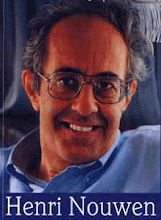 "The question of who is considered poor is a fundamental one in Jewish law, because many commandments of the Torah apply specifically to the poor and needy. For example, a farmer in the Land of Israel is required to leave part of the harvest for the benefit of the poor: 'And when you cut the harvest of your land, don't eliminate the corner of the field in your cutting, and don't gather the stray sheaf; leave it for the poor and the sojourner - I am the Lord your God' (Leviticus 23:22).
"The question of who is considered poor is a fundamental one in Jewish law, because many commandments of the Torah apply specifically to the poor and needy. For example, a farmer in the Land of Israel is required to leave part of the harvest for the benefit of the poor: 'And when you cut the harvest of your land, don't eliminate the corner of the field in your cutting, and don't gather the stray sheaf; leave it for the poor and the sojourner - I am the Lord your God' (Leviticus 23:22)."Likewise, we are commanded to give charity to the needy: 'When there will be a needy person from among your brothers in any of your gates in your land which the Lord, your God gave you, don't harden your heart and don't close your hand to your needy brother' (Deuteronomy 15:7).
"Many prominent Jewish law authorities generalized from rulings in the Mishnah and concluded that the most meaningful measure of poverty is that someone does not have the basic wherewithal to earn a living. The main principle is that poverty is mostly a function of insufficient income rather than insufficient wealth.
"The Mishnah states that in order to be eligible for the weekly distribution of 'emergency rations' a person has to lack even a week's worth of food; likewise, individuals or the community may want to set up an emergency fund for the most desperately needy. Also, an older person on a fixed income that is insufficient for basic needs is certainly eligible for charity assistance."
Rabbi Dr. Asher Meir is one of the Jewish world's best-known lecturers and educators in the area of business ethics. Rabbi Dr Meir’s extensive background includes being educated at Harvard, and obtaining a Ph.D. in economics from MIT.
________
More on the Internet:
http://www.aish.com/





















No comments:
Post a Comment